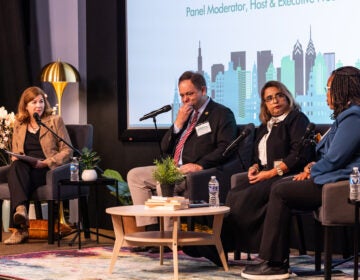Young and undocumented in Philly: How teens are finding support and community
Being in a new country, learning a new culture and language — it’s a lot to digest. At three Philly schools, students approach things as a group.
Listen 4:55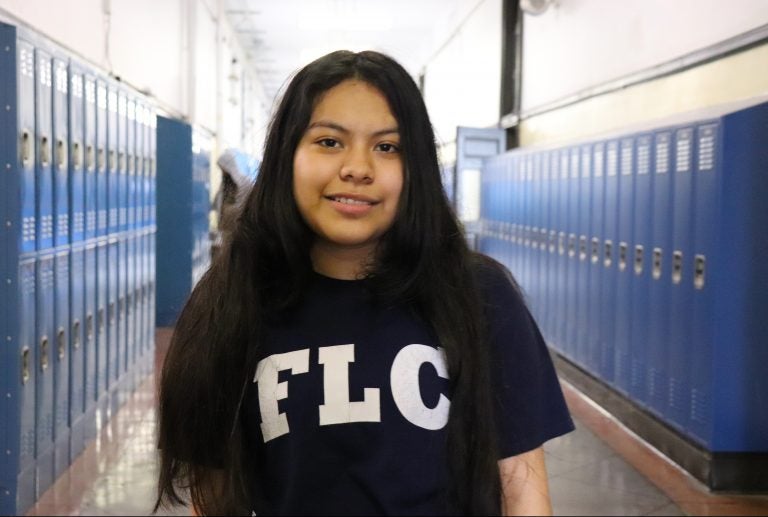
Keyri Artillero, 14, stands in the hallway of Franklin Learning Center, right outside of La Puerta Abierta's meeting room. (Elizabeth Estrada/WHYY)
How do we help children thrive and stay healthy in today’s world? Check out our Modern Kids series for more stories.
When you’re a teenager, there are the everyday things you have to deal with: showing up to school on time; doing your homework; extracurriculars; perhaps even a boyfriend or girlfriend.
But when you’re also undocumented, there are the higher-stake things to worry about too. Being in a new country. Having to learn a new culture and language. And then, there’s citizenship status — whether it’s yours or a relative’s, you also have to worry about court proceedings, the possibility of being picked up by Immigration and Customs Enforcement, deportation, and more.
“You can get really depressed,” Keyri Artillero said during an interview in Spanish. She’s 14 and attends Franklin Learning Center in Spring Garden.
Keyri came to the United States with her mother and three siblings, escaping a dangerous situation in Mexico after Keyri’s uncle, her mom’s brother, was murdered by the cartel. Her family was widely reported about in Philadelphia as they were on the brink of being deported. But before that could happen, Keyri’s mom, Carmela Apolonio Hernandez, went knocking on every church door she could, seeking sanctuary. They found it and lived for a year at the Church of the Advocate in North Philadelphia.
After several weeks inside the church, Keyri’s mother decided it was time for her children to go to school. That was at the end of 2018. Since then, Keryi and her family have relocated to Germantown Mennonite Church.
High school was a hard transition, Keyri said — once again, new surroundings. She knows little English, and there weren’t many other students to connect with who were like her.
Until she learned about La Puerta Abierta — Spanish for “the open door.”
“They said, ‘You’ll be able to speak Spanish, play, speak about your experiences and how you live here,’ and I said, `Wow that’s wonderful.’ … So I said yes, I want to go and hear about what others have to share, and maybe share a bit about my life, too.”
From that point on, every Thursday morning Keyri joined some other students at her school in Room 306 for group counseling. There, instead of taking a typical class, they would discuss everything from their immigration stories to healthy relationships. Sometimes, music and art would be incorporated.
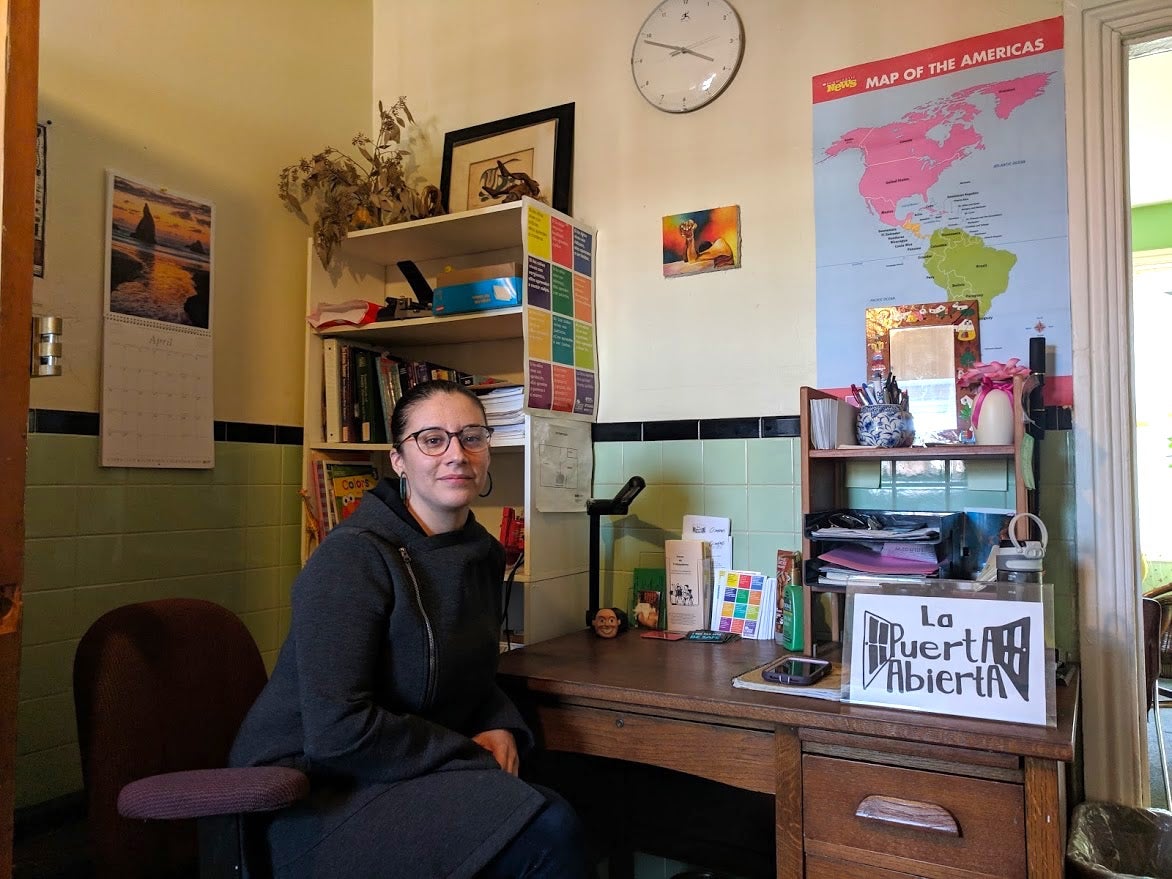
“It’s a very intentional space,” said Tamara Jiménez, who facilitates the group. She started out supporting La Puerta Abierta as a volunteer, then officially became its youth programming coordinator two years ago.
“We need to be creative, especially with teenagers, because they can be closed off and not very trusting, and they have very valid reasons,” Jiménez said. “So we tend to approach it in a way that in the group you can share what you need to share and what you want to share and it’s very confidential — anything that we share in the group, it doesn’t leave that space.”
LPA runs counseling groups in three Philadelphia schools. The grassroots organization was formed in Latin America before coming to the Philadelphia region. It works directly with the Latino immigrant and refugee community, and also focuses on system-shifting work, offering schools and hospitals training to make their services more accessible as well as more culturally and trauma-informed.
“The mission is to provide access to quality mental health support and services for folks who face barriers to care,” said Cathi Tillman, executive director of LPA. Among those barriers are language and legal status.
Some students in LPA’s counseling groups are undocumented and seeking asylum or other kinds of visas. That’s why LPA doesn’t work alone — the organization partners with the Philadelphia school district and HIAS Pennsylvania, a legal services and refugee resettlement organization.
LPA provides a space for students to share and process their experiences, connect and build relationships, while HIAS offers legal support.
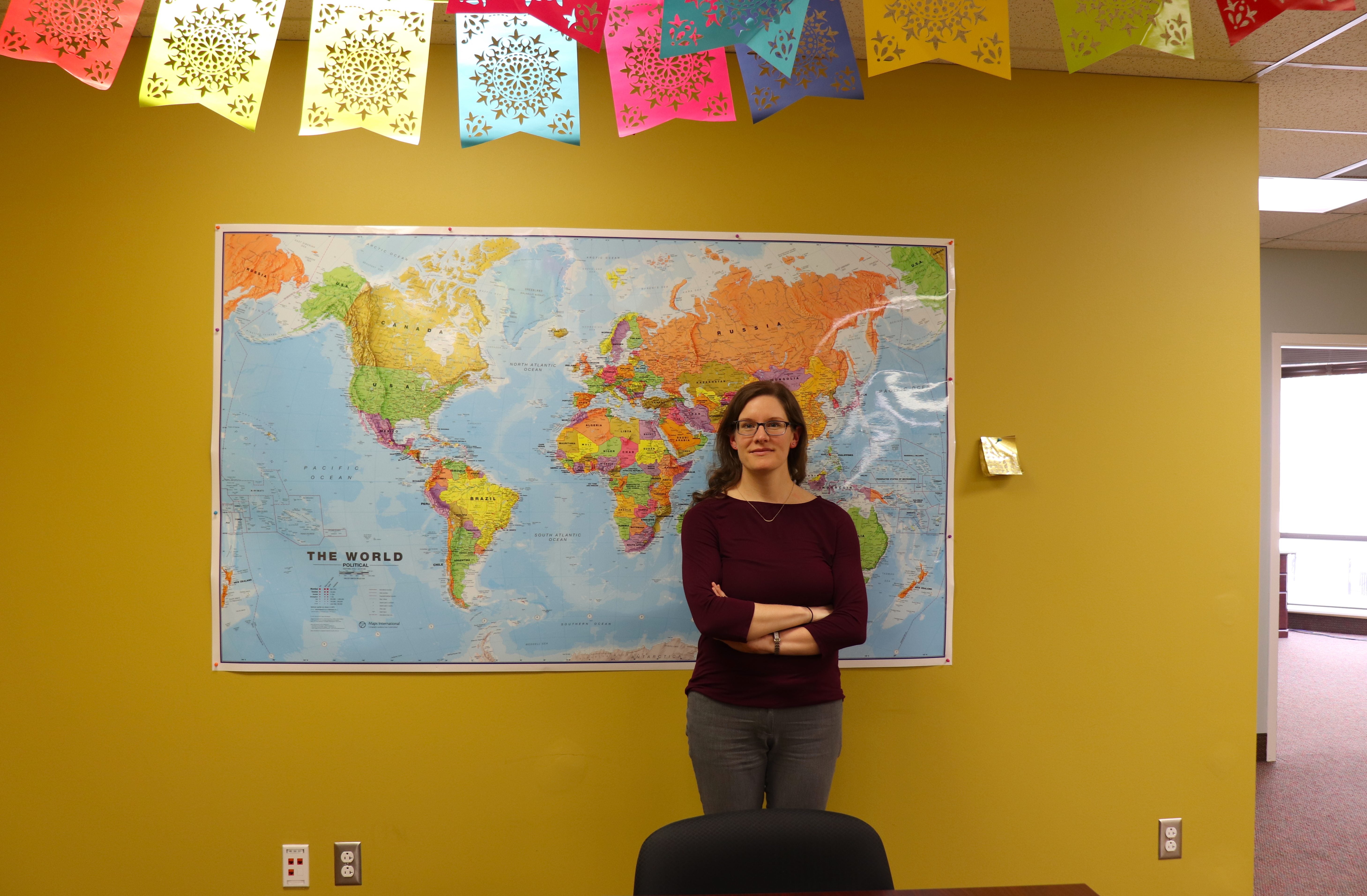
“Our staff come out a couple times during the year … to offer a free know-your-rights session and free confidential legal screenings to any student who’s interested in having that,” said Elizabeth Yaeger, the supervising attorney of HIAS’s youth advocacy initiative.
Knowing your rights is one of the things Keyri has taken away from her group sessions. “They’ve given us lots of advice and told us that we, as immigrants, also have rights when it comes to many things,” she said.
When Yaeger and her team go into schools, they break down information for the students and talk about the rights that everybody has, regardless of immigration status.
“You have the right to go to school, you have the right to be free from bullying. You have the right to feel safe in your home … in your school, and to be able to call the police if there’s a problem, at least here in Philadelphia,” said Yaeger.
She also reviews the rights people have with regard to ICE and higher education, as well as the options available and most commonly utilized by young people to legalize their status. It can be overwhelming.
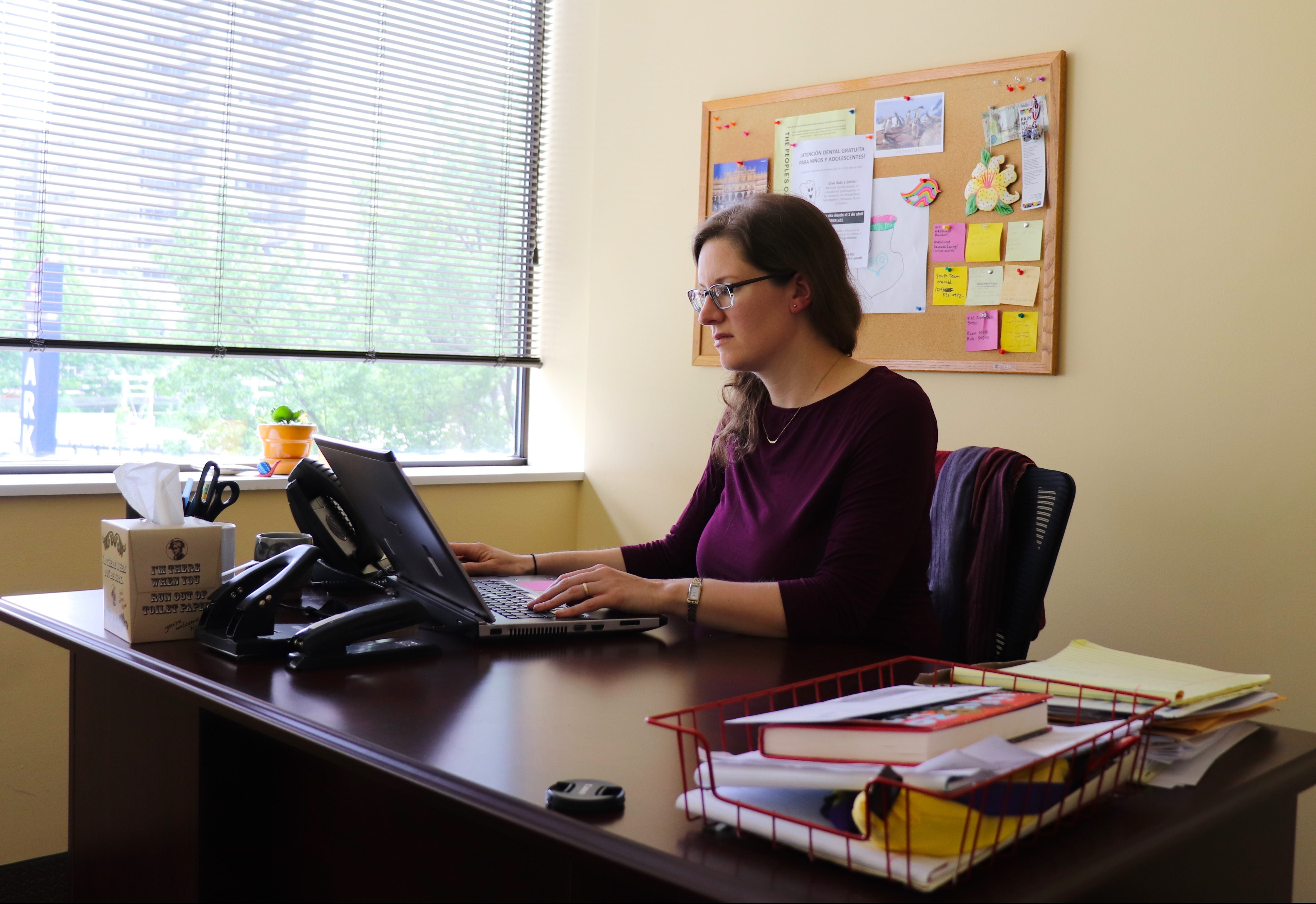
“There’s a tremendous amount of stress and anxiety,” Yaeger said, and that doesn’t necessarily stop once a student receives legal representation. “The child might be having to meet with the lawyer and talk in detail about past trauma that they’ve experienced. All of that is stuff that can exacerbate past trauma and sometimes be difficult, especially [for] a kid or young person to do.”
It’s difficult to recount some of those experiences to the group too, Keyri said in Spanish. “We would talk about immigration and all of that, and sometimes I don’t like to talk about it because I remember everything that’s happened and everything I’ve gone through and I don’t like it.”
Students in LPA’s groups are strong and resilient, Yaeger said: They’ve traveled from different countries, been in detention centers, experienced violence. “They all deserve our attention and support and care in the same way that every other kid does.”
LPA’s group sessions are intended only for newly arrived students. That means once they’ve been in the program for a school term, they wrap up and make room for new kids to participate.
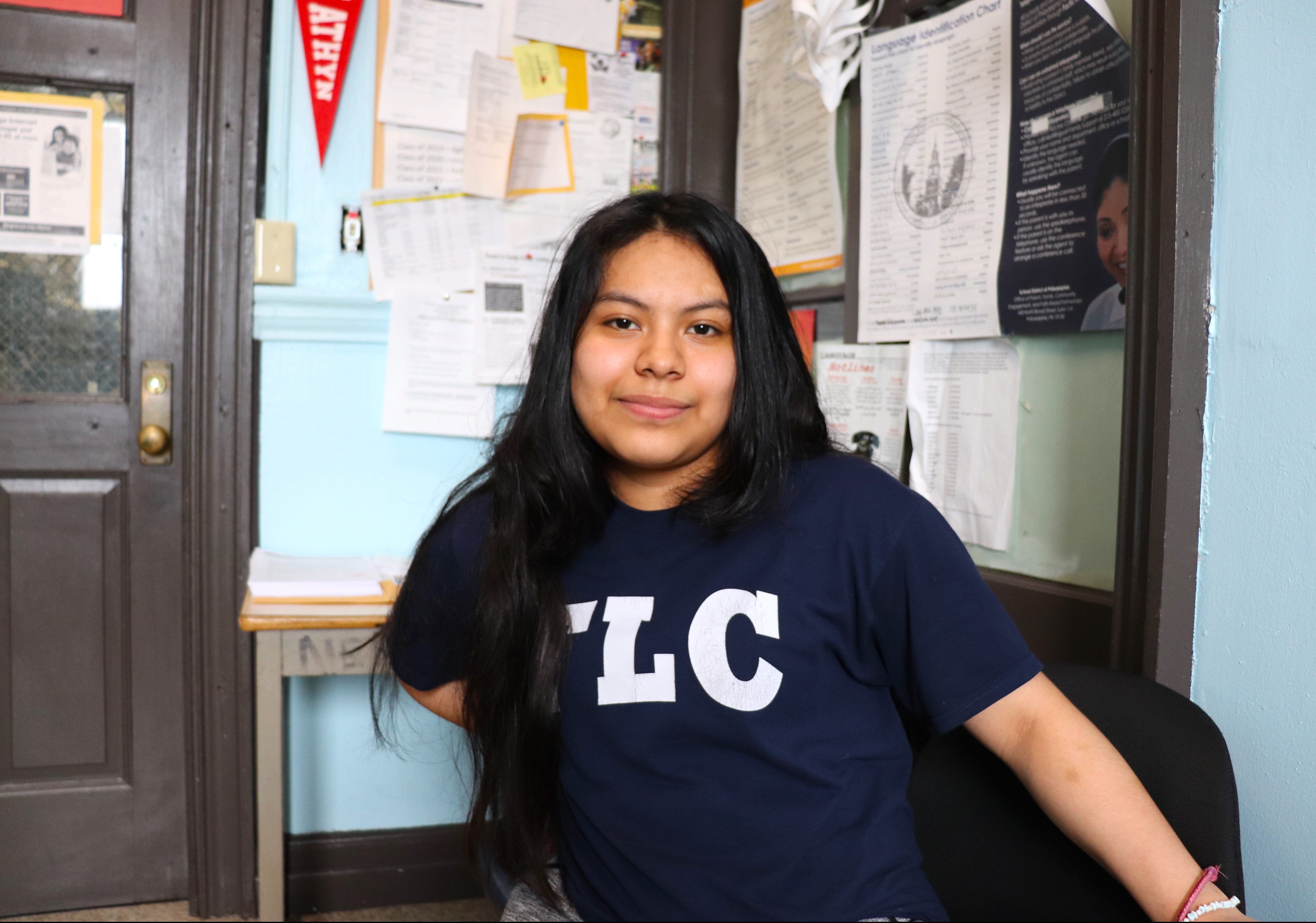
So next year, Keyri won’t have the formal support she did this year, but she’s learned so much, she said: “Always have confidence in yourself. Always be positive. We all go through hard times but we have to keep fighting, because if we don’t fight for ourselves, then who will?”
In the fall, Keyri will be back to a regular school schedule. But should she or any other student need support or someone to talk to … the door is always open.
WHYY is your source for fact-based, in-depth journalism and information. As a nonprofit organization, we rely on financial support from readers like you. Please give today.



